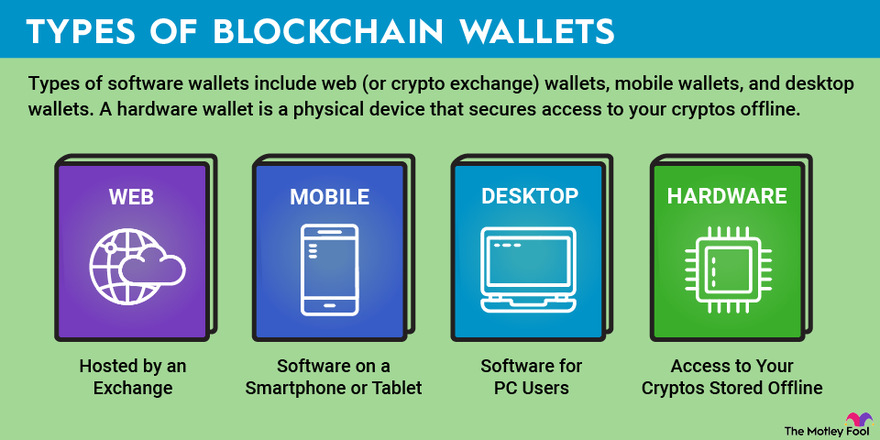In the rapidly evolving world of cryptocurrency, one tool stands out as essential for anyone looking to buy, sell or trade digital assets: The cryptographic wallet. But what is it? A crypto wallet and how does it function in this new and rapidly growing sector of the financial world? This article will go deeper into what crypto wallets are, the various categories of the wallets, the underlying technology and how such wallets protect your assets.
Understanding Crypto Wallet
The best crypto wallet is a software or hardware application that enables one to store, transfer or receive digital currencies such as Bitcoins and Ethereum among others. While they are called wallets, the crypto wallets do not hold your cryptocurrency in the same way that the physical wallet holds money. Rather, they contain the public and private keys that are used for the interaction with the blockchain – the distributed ledger underlying cryptocurrencies.
Your public key is like your account number that you can give to others to deposit money into your account. Your private key, however, is like your password or your PIN which you are supposed to keep to yourself. This key will enable you to get in and have control over your funds within the blockchain. Losing the private key results in loss of access to the cryptocurrency and this is the reason why it should be well protected.
How Crypto Wallets Work
To know how a Crypto Wallet works, it is necessary to understand the basic mechanism of how crypto transactions work. When you receive the cryptocurrency, the sender is quite literally transferring ownership of the coins to the specific wallet address you have provided. This transaction is placed on the blockchain a shared database that contains information about every cryptocurrency transaction.
- Creating a Wallet: When you are opening a crypto wallet you are given a so-called pair of keys, which are the public key and the private key. The public key is generated from the private key and it is the one that is used to generate your wallet address.
- Receiving Funds: To get a cryptocurrency, you have to transfer your address that is created from the public key to the sender. The sender will use this address to send funds to your wallet as a result, you need to ensure that the address is safe.
- Storing Funds: What you get is not the cryptocurrency that is stored in your wallet. However, it is saved in the blockchain under the wallet address that you use. The wallet is only a tool that can store those keys that enable one to access and control such funds.
- Sending Funds: When you want to send some cryptocurrency, you have to sign the transaction and for this, you need your private key. This signature is in effect confirming that you are the owner of the funds and that you have permitted the transfer of the funds. This is then sent to the blockchain network and is checked and approved before being added to the ledger.
Types of Crypto Wallets
There are several types of Crypto wallets available in the market which can be categorised based on their security, usability and features. It is therefore important that anybody who is in a position to select a wallet to use should first understand the various forms of wallets that are available in the market.
Hot Wallets
- Software Wallets: These are the apps or software that one has to download and install on their computer or their smartphone. The two are connected to the internet and as such the second one is more useful in daily life. Some of the such wallets are Exodus, Mycelium and Trust Wallet.
- Web Wallets: These are web-based wallets and one can easily access them via the Internet at any time. They are also online, that is, they can be accessed from any place in the world. For instance, there is Coinbase and Blockchain.info.
Cold Wallets
- Hardware Wallets: These are physical hardware wallets that store your private keys in what can be termed as ‘cold storage’. They are more secure than the others because they are not linked to the internet and hence not vulnerable to cyber criminals. Some of these include Ledger Nano S, Trezor and KeepKey.
- Paper Wallets: A paper wallet is a hard copy that stores your private and public keys in the form of two-dimensional bar codes. They do not have a web page interface and hence are highly secure, though they can be misplaced or be in a bad state in some way.
Security Features of Crypto Wallets
The security of the crypto wallets is important because these wallets are the actual gateway to your funds in cryptocurrencies. Here are some of the key security features you should be aware of:
- Private Key Encryption: The private key is the most confidential of all the components of your wallet for which you should be ready to spend some time. To avoid it, almost all wallets have a function called encryption that makes it impossible to get your money without a code – the private key.
- Two-Factor Authentication (2FA): Some wallets have this option of 2FA this is where after confirming your identity when using the wallet you are required to confirm in another device or another app to sign in to your wallet or make any transaction.
Conclusion
The best crypto wallet will therefore be the one that meets your desired requirements and the type of use to which you intend to put it. For day-to-day transactions, a hot wallet is easy to use and is very convenient. But if you are extremely security concerned, especially for storing them for a longer time, a cold wallet such as a hardware one is the most recommended.





